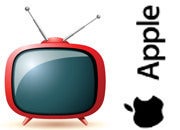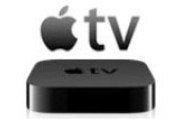
Before he passed away last October, Steve Jobs claimed to havecracked the code to a TV revolution: Make everything simple to use, sync all content with other devices through the Internet, and do away with clunky remotes and complex lists of cable channels.
But to make an Apple television a reality, the company needs more control over TV content. According to a new report from the New York Post, content providers aren't quite as willing to embrace Jobs' vision.
Citing unnamed sources, the Post reports that Apple is trying add streaming video to its existing lineup of on-demand movies and shows in iTunes. The problem is that Apple reportedly wants to call the shots on what content is available and how much it costs, and content providers, who are clinging to the lucrative status quo of cable and satellite TV, don't want to play along. One executive complained that Apple wants "everything for nothing."

These troubled negotiations could hurt Apple's plans to conquer the living room. The company already offers an Apple TV set-top box, but with only a handful of third-party streaming services in addition to on-demand iTunes content. Tech watchers expect Apple to launch an actual television set, but only if the company can strip away the extra set-top boxes (and wires) that users connect to their existing sets.
This wouldn't be the first time that Apple has supposedly tried and failed to bring subscription TV to iTunes. In 2009, analysts speculated that Apple would offer a bundle of shows for $30 to $40 per month. It never happened, and now the Post says Apple's demand to share ad revenue with content providers was the sticking point. Apple was also reportedly negotiating with cable providers, but thePost says cable executives walked away, not willing to risk their existing business.
And it's not just Apple. TV networks were quick to block Google TV from their streaming Websites, effectively burying the product. Netflix just lost a chunk of content from Starz, and saw its mail-order releases for Time Warner DVDs pushed back to 56 days. The only company to have success so far is Microsoft, which has partnered with Comcast and Verizon to let subscribers watch TV to the Xbox 360, but even that's just a baby step. It doesn't change the way television is packaged or sold.
It's hard to be surprised about these kinds of reports anymore, but they're always disappointing to hear. Dreaming up how to make TV better is relatively easy--the hard part, as we see over and over, is convincing the incumbent industry that it will be better off as a result.
0 comments:
Post a Comment